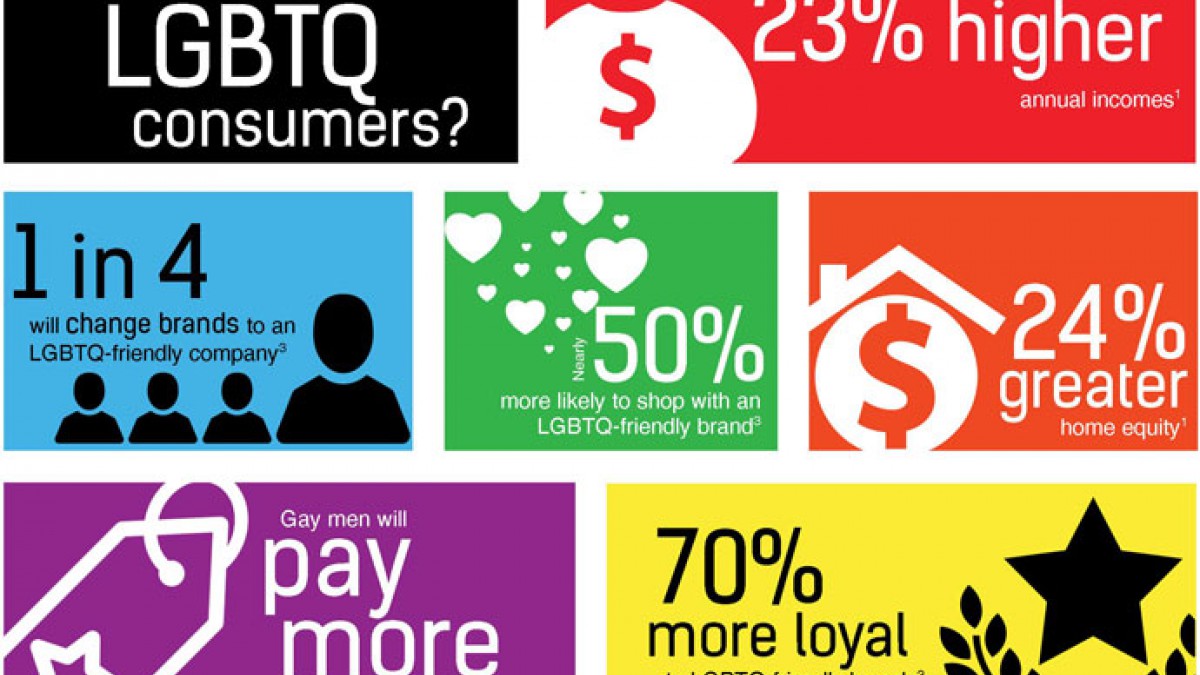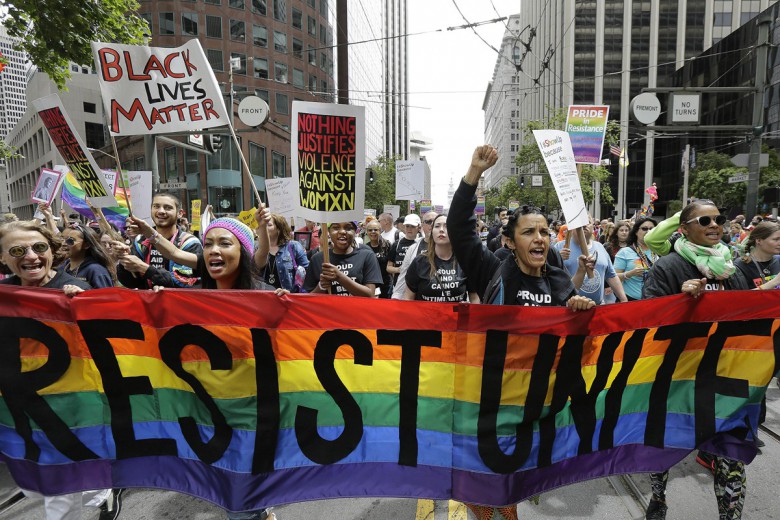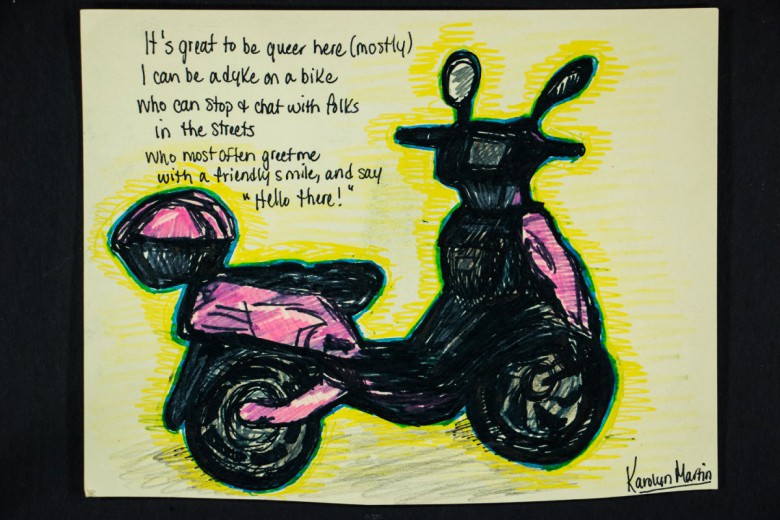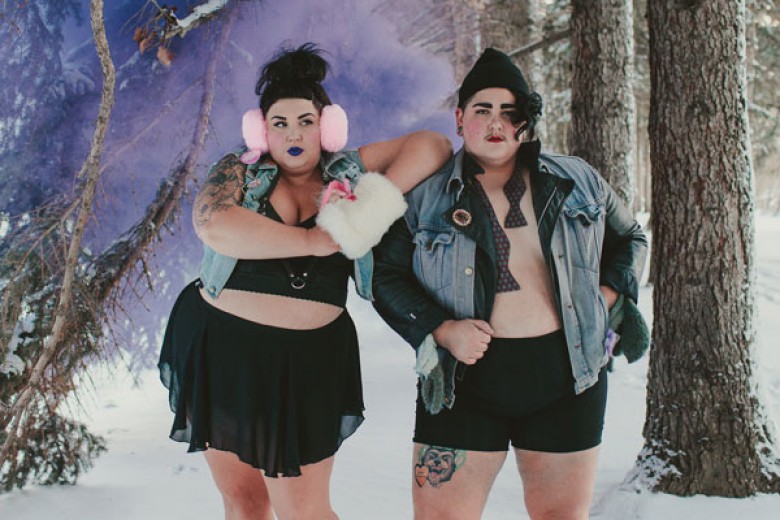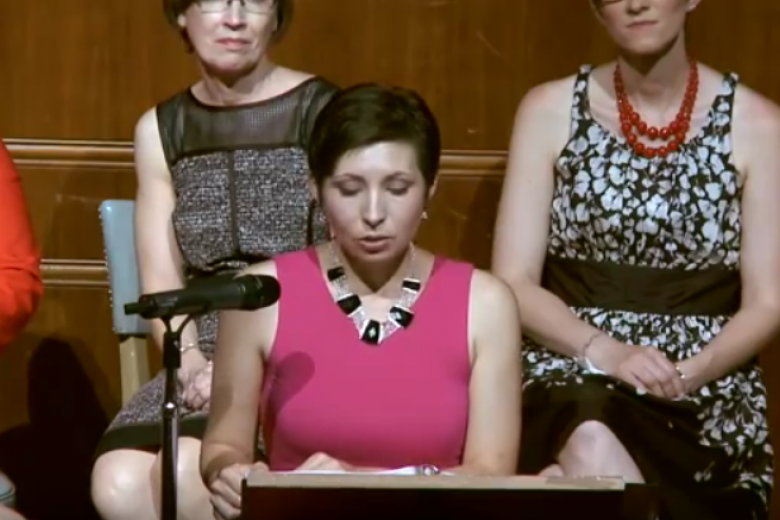I’m a queer woman, whose relationships over the past eight years have been predominately lesbian. I used to love Pride week. There was nothing I found more exciting than sectioning off streets to march alongside like-minded peers in loud clothing. I ignorantly mistook those who didn’t “do Pride” as smug queens, but slowly, though perhaps for different reasons, I began sliding in that direction myself.
This year, I flipped through Regina’s Pride week guide ambivalently. The first page began the many advertisements. Queen City Pride’s message of diversity seemed humourlessly incongruous with the homogenized presentation of its Pride guide. Sandwiched between businesses claiming to love and support The Gays were messages from political leaders delivering pithy statements about inclusion.
Pride isn’t quite what it strives to be: an inclusive celebration for an array of alternative identities, backed by tangible, year-round community support. Many queer theorists have rightfully asserted that Pride week is becoming insufferably corporatized, and we should be concerned about this. While it’s great that many local businesses show support by flying flags or donating, the pernicious effects of corporatizing our culture remain. Regina’s Pride guide is so loaded with advertisements it seems we are edging dangerously close to allowing corporate interests to fully determine what takes place during our month of awareness.
Queer capitalism?
Historically, defiant Pride marches were antithetical to the private agenda of the corporations now seeking a way in. My queerness is not for sale, yet the stream of shallow advertisements and superficial diversity announcements during the month of June make me wonder. “We believe the best way to support a community is to become a part of it,” claims one ad. This is, in a word, untrue. Those outside of a community need to respect the voices of those whom they are supposedly supporting and take a back-seat role, lest the authentic voices of those who create the community be drowned. True allyship means knowing when to offer background support and when to hand over the mic. A corporation poking its way into Pride week isn’t about support at all – it’s just self-interested capitalist branding and marketing.
The fact is that most employers that claim to support LGBTQ communities simply don’t. We remain under-represented in so many of the organizations that become a part of “our community” for a month or a day. Back in reality, when the floats are parked, LGBTQ discrimination is happening every day, on the streets and in our economy. The wage disparity between men and women exists for gay, queer and trans people, too. Not only do some queer, gay and trans people avoid certain employers due to a feeling of alienation within heteronormative environments, but I know trans people who have been indirectly fired for being trans. Recently, an androgynous ex-lover was attacked by police. I have had colleagues who were overtly uncomfortable with any lesbianic anecdote. I couldn’t even talk about going on a date, yet listened to their stories about their husbands. When I worked in a corporate communications department years ago, I overheard extreme homophobia and mockery in the elevator from the marketing manager and her friends. Just the other day, I listened to a public address on LGBT acceptance from a community leader who didn’t even respond to my email on the ways in which the organization could increase trans and genderqueer equality.
Assimilation isn’t a victory
Pride is an important week because it brings people together, makes us visible, provides an exchange of information, and allows us to blow off steam. There are some useful aspects of Regina’s Pride guide: resources for interested youth and trans people, information on anti-harassment policies, and more. I want to see more of this. More resources that integrate information for the darker realities of LGBTQ experiences: help for rape survivors and for addictions issues. And how about a guide that restricts the advertisements to organizations that have earned a place there? Rather than a fat book of where to shop and do my banking, I want to read about queer history and read stories told by queers.
If Pride continues on its present trajectory it will become nothing but a pat on the back for capitalism and assimilation. What else is the Pride parade celebrating besides white gay people who have successfully assimilated? What does an RBC swag bag in the beer gardens have to do with celebrating queerness?
As the month progresses, the taste in the mouths of activists grows increasingly flat. One of the bravest queer women in our community – who undertook a human rights battle against a local barbershop resulting in an exciting win for the so-called queer community during Pride week – has received little thanks. Instead, she has received character attacks from queers whom she sought to help. And Queen City Pride remains silent as she is cyber-bullied by misogynists and homophobes. What happened to speaking up against injustice?
This month, activists were directly blocked by the Queen City Pride board from making political statements at the Legislature’s flag-raising, and I have been warned by several peers not to put my birth name on this letter to ensure job security and personal safety. Why do we celebrate as though we’ve “made it?” We accept our muzzles graciously from funding interests with an increasing fear of resisting, of speaking our truths, and of honest debate. Even the police, who continue to over-exercise their authority over all minorities and marginalized people, are welcomed into our parade without critique.
Assimilation and complacency don’t mean that “we’ve come a long way.” While I wholeheartedly support coequality among queers and non-queers, I deplore the thought of queerness becoming indistinguishable from straightness. And yet this is what we’re supposed to take pride in: banks, police, and corporate swag.
Correction: This blog post originally referred to TD Bank, but RBC is the banking sponsor of Pride in Regina.


